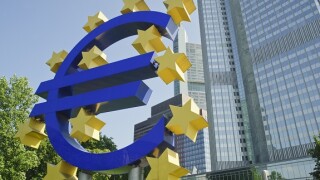ING
-
Naturgy Energy, the Spanish gas and electricity utility, has doubled the size of its revolving credit facility in an amend and extend exercise, the latest demonstration that the balance of power in the loan market remains firmly on the side of the borrowers.
-
Bayfront Infrastructure Management has sold the world's first public sustainability securitization deal that was part of a rare project finance trade. Its chief executive tells GlobalCapital Asia that this is unlikely to be its last.
-
French insurer Macif hit all the subordinated formats available to insurance issuers on Monday, as it attracted a bumper €14bn book for a triple tranche deal to fund its acquisition of Aviva France.
-
Two European animal healthcare companies have announced their intention to float in recent days. Bankers hope that the fast growing sector will offer something different in a crowded pipeline of new stockmarket listings in the region.
-
Basic Fit, the Dutch operator of low-cost gyms, has issued a €303.7m convertible bond as it prepares for growth opportunities following the reopening of all of its fitness centres this week following more than a year of lockdowns caused by the pandemic.
-
The German state of Hesse was marketing its new green bond framework this week ahead a of a debut deal in the format.
-
Europe’s high grade corporate issuers piled into the bond market during the run-up to this week’s European Central Bank meeting, with Vonovia and JDE Peet’s bringing standout jumbo trades.
-
Aedifica, the Belgian real estate investment trust focused on healthcare properties, is financing its forward pipeline of investment opportunities with a €300m sale of new shares.
-
Enel, a long term sustainable finance champion, took €10.4bn of orders for its triple tranche sustainability-linked notes this week, but needed to pay up for longer maturities as inflation worries persisted.
-
French insurer Macif is set to issue up to €1.75bn of subordinated debt to fund its coming acquisition of Aviva France.
-
Two issuers in Europe’s high grade corporate bond headed to the short part of their curves on Monday as inflation worries continue to rattle the market ahead of the European Central Bank meeting on Thursday.
-
A spate of UK borrowers have signed loans that use Sonia as the benchmark rate from day one this week, with the consistently tricky transition given some cheer after companies said that the process is fairly simple.












